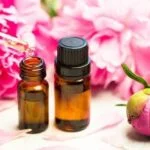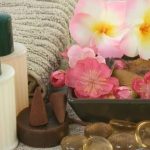Aromatherapy has been gaining popularity in recent years for its potential health and wellness benefits, including its positive effects on skin health. But the question remains: does aromatherapy cause acne? In this article, we will delve into the world of aromatherapy and its impact on acne-prone skin.
Aromatherapy involves the use of essential oils and plant extracts to promote physical and psychological well-being. When it comes to skin health, aromatherapy is often used to address various concerns such as acne, inflammation, and aging. However, there has been some debate about whether certain essential oils used in aromatherapy can actually worsen acne.
In this section, we will explore the fundamentals of aromatherapy and its potential benefits for skin health. We will take a closer look at how essential oils interact with the skin and whether they have the potential to cause or exacerbate acne. By understanding the science behind aromatherapy, we can gain a clearer perspective on its effects on acne-prone skin.
What Causes Acne
Acne is a common skin condition that affects millions of people worldwide. It occurs when hair follicles become clogged with oil and dead skin cells, leading to the formation of pimples, blackheads, and whiteheads. While the exact cause of acne is not fully understood, several factors are known to contribute to its development.
Excess Oil Production
One of the main factors that contribute to acne development is excess oil production in the skin. This excess oil, also known as sebum, can clog the pores and lead to the formation of acne.
Bacterial Infection
Another factor behind acne development is a bacterial infection. When the pores become clogged with oil and dead skin cells, bacteria can multiply, leading to inflammation and the formation of pimples.
Hormonal Imbalances
Hormonal imbalances play a significant role in acne development, particularly during puberty, menstruation, pregnancy, and menopause. Fluctuations in hormone levels can stimulate the sebaceous glands to produce more oil, thus increasing the risk of developing acne.
While these factors are known to contribute to acne development, it is important to note that aromatherapy itself does not directly cause acne. However, certain essential oils used in aromatherapy have the potential to aggravate existing acne or cause new breakouts if not used properly. Understanding how essential oils interact with the skin is crucial in determining whether aromatherapy can benefit or harm individuals with acne-prone skin.
The Role of Essential Oils in Aromatherapy
Aromatherapy has gained popularity for its potential to improve skin health, but there is a common concern about whether it can cause acne. Essential oils, the main components of aromatherapy, have been used for centuries for various purposes including skincare. When it comes to acne-prone skin, the interaction between essential oils and the skin is a crucial factor to consider.
Essential oils are highly concentrated plant extracts known for their aromatic properties as well as potential therapeutic benefits. When applied to the skin, essential oils can penetrate into the pores and interact with the sebaceous glands. Some essential oils have antibacterial and anti-inflammatory properties which can be beneficial for acne-prone skin. However, not all essential oils are suitable for all skin types and some may potentially exacerbate acne symptoms.
It’s important to understand that not all essential oils are created equal in terms of their effects on the skin. The chemical composition of each oil varies and can impact how it interacts with different skin types.
For individuals with acne-prone skin, using certain essential oils without proper dilution or in high concentrations can potentially clog pores and worsen acne symptoms. Therefore, it’s crucial to choose essential oils carefully and use them under the guidance of a skincare professional or aromatherapist.
| Essential Oils | Skin Type Suitability |
|---|---|
| Lavender | Suitable for most skin types, including acne-prone skin |
| Tea Tree | Suitable for acne-prone and oily skin due to its antibacterial properties |
| Chamomile | Suitable for sensitive and inflamed acne-prone skin |
Debunking the Myth
Understanding the Misconceptions
There is a common misconception that aromatherapy can cause acne or aggravate existing acne. This belief stems from the idea that essential oils, which are commonly used in aromatherapy, can clog pores and lead to breakouts. However, this is not entirely true. While it is possible for certain essential oils to cause skin irritation or allergic reactions, when used properly, aromatherapy can actually benefit the skin and help alleviate acne.
The Truth About Aromatherapy and Acne
It is important to note that not all essential oils are created equal. Some essential oils have antibacterial, anti-inflammatory, and soothing properties that can be beneficial for acne-prone skin. Additionally, when diluted properly and used according to guidelines, essential oils can actually help improve the overall health of the skin and reduce the appearance of acne.
Proper Usage and Dilution
One of the key factors in debunking the myth about aromatherapy causing acne is understanding proper usage and dilution of essential oils. Undiluted essential oils should never be applied directly to the skin as they can cause irritation. Instead, they should be diluted with a carrier oil before being applied topically.
Additionally, it is important to patch test any new essential oil before using it regularly to ensure that it does not cause a negative reaction on the skin. When used correctly, aromatherapy can be a valuable tool in managing acne-prone skin without causing breakouts.
The Best Essential Oils for Acne-Prone Skin
The use of essential oils in aromatherapy can be a beneficial and natural approach to skincare, especially for those with acne-prone skin. Essential oils have been found to possess antibacterial, anti-inflammatory, and antioxidant properties that can help address the underlying factors that contribute to acne development. When used properly, essential oils can provide a safe and effective way to promote clear and healthy skin.
One of the key benefits of using essential oils in aromatherapy for acne-prone skin is their ability to effectively target the bacteria and inflammation associated with acne. For example, tea tree oil has been shown to have strong antimicrobial properties, making it an effective option for reducing the presence of acne-causing bacteria on the skin. Similarly, lavender oil possesses anti-inflammatory properties that can help soothe redness and irritation often associated with acne.
It’s important to note that not all essential oils are suitable for every individual, especially those with acne-prone skin. While some essential oils may be beneficial for one person, they could potentially cause irritation or worsen acne breakouts in others. Understanding which essential oils are best suited for your skin type is crucial in order to safely incorporate aromatherapy into your skincare routine without risking aggravating acne.
The Potential Risks of Aromatherapy
When it comes to aromatherapy and its effects on acne, there are some potential risks to be aware of. While aromatherapy can offer many benefits for skin health, certain essential oils and practices can aggravate acne-prone skin. It’s important to understand when and how aromatherapy may contribute to acne breakouts in order to make informed choices for your skincare routine.
Factors that contribute to the potential risks of aromatherapy exacerbating acne include the use of certain essential oils, improper dilution or application, and individual skin sensitivities. Here are some key points to consider when incorporating aromatherapy into your skincare routine:
Potential Risks of Aromatherapy for Acne-Prone Skin:
- Essential Oils: Some essential oils have high comedogenic ratings, which means they have a greater likelihood of clogging pores and causing breakouts. Examples of these oils include coconut oil, cocoa butter, and flaxseed oil.
- Improper Dilution: Using undiluted essential oils directly on the skin can lead to irritation and inflammation, which can exacerbate acne. It’s important to properly dilute essential oils with carrier oils or water before applying them to the skin.
- Skin Sensitivities: Individuals with sensitive or reactive skin may experience worsened acne symptoms from certain essential oils or aromatic compounds. It’s crucial to perform a patch test before using any new essential oil or aromatherapy product on your skin.
Understanding these potential risks can help you make informed decisions about incorporating aromatherapy into your skincare routine. By being mindful of the types of essential oils you use, how you dilute them, and your individual skin sensitivities, you can minimize the likelihood of aromatherapy worsening acne symptoms.
Remember that everyone’s skin is unique, so what may work well for some individuals may not be suitable for others. It’s always best to consult with a dermatologist or skincare professional if you have concerns about using aromatherapy products on acne-prone skin. With proper knowledge and care, it is possible to enjoy the benefits of aromatherapy without aggravating acne.
Conclusion
In conclusion, the debate about whether aromatherapy causes acne is not a clear-cut yes or no answer. Aromatherapy can have many benefits for skin health, including its potential to help with acne-prone skin. The use of certain essential oils in aromatherapy can actually help to alleviate acne and improve skin condition. However, it is important to be cautious and educated about which essential oils are suitable for acne-prone skin and how they should be used.
While there are misconceptions about aromatherapy causing acne, it is crucial to understand that not all essential oils are created equal. Some essential oils have antibacterial and anti-inflammatory properties that can be beneficial for managing acne, while others may exacerbate the condition. It is essential to do thorough research and consult with a skincare professional before incorporating aromatherapy into your skincare routine.
Ultimately, when used correctly and with the right essential oils, aromatherapy has the potential to support clearer, healthier skin for individuals with acne-prone skin. It is important to approach aromatherapy with caution and awareness of individual sensitivities and potential risks. By understanding the proper use of essential oils in aromatherapy and being mindful of their interactions with the skin, individuals can harness the power of aromatherapy for better skin health without exacerbating acne.
So, does aromatherapy cause cause acne? It depends on how it is used and which essential oils are chosen, making informed choices vital for achieving the desired results without causing harm to the skin.
Frequently Asked Questions
Can Essential Oils Cause Acne?
Essential oils can potentially cause acne, especially for individuals with sensitive or reactive skin. Some essential oils have a high comedogenic rating, meaning they can clog pores and lead to breakouts.
Is Aromatherapy Bad for Skin?
Aromatherapy can be bad for the skin if not used properly. Certain essential oils can cause skin irritation, redness, or allergic reactions when applied directly to the skin without proper dilution or in high concentrations.
What Are the Bad Side Effects of Aromatherapy?
The bad side effects of aromatherapy include skin irritation, allergic reactions, photosensitivity (increased sensitivity to sunlight), and respiratory issues in some individuals. It’s important to use caution and do a patch test before using any new essential oil for aromatherapy purposes.

Are you looking for a natural way to improve your health and wellbeing?
If so, aromatherapy may be the answer for you.



